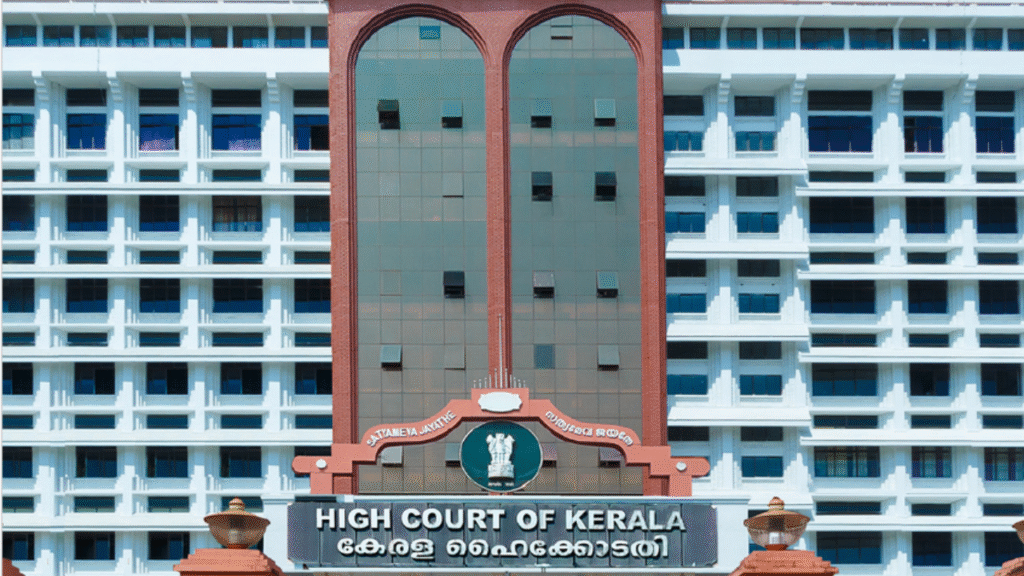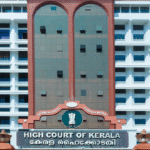ELECTRICITY ACT, 2003 (ACT 36 OF 2003) – SECTION 42(5) & 42(6) – KERALA STATE ELECTRICITY REGULATORY COMMISSION (CONSUMER GRIEVANCE REDRESSAL FORUM AND ELECTRICITY OMBUDSMAN) REGULATIONS, 2005 – MAINTAINABILITY OF WRIT PETITION BY DISTRIBUTION LICENSEE AGAINST ORDER OF CONSUMER GRIEVANCE REDRESSAL FORUM (CGRF)
(2025) 7 KCD 312 : 2025 KER 56915
IN THE HIGH COURT OF KERALA
S. MANU, J.
W.P.(C).No.25898 of 2015; 31 July, 2025
Issue: Whether a writ petition filed by a distribution licensee, such as the Kerala State Electricity Board (KSEB), challenging an order passed by the Consumer Grievance Redressal Forum (CGRF) is maintainable.
Facts: The Assistant Engineer of the KSEB filed a writ petition challenging an order issued by the Consumer Grievance Redressal Forum (CGRF) in favor of M/s. Pooja Milk Foods Private Ltd.. An inspection by the Anti-Power Theft Squad (APTS) on September 25, 2008, detected that the respondent’s industrial unit was using more than 20% of its total connected load for chilling operations. Consequently, a short assessment bill for Rs. 10,09,331/- was issued on September 27, 2008, and the tariff was changed to LT-VIIA.
The respondent initially approached the High Court, which directed them to the CGRF, instructing a payment of Rs. 2,00,000/- while the bill was kept in abeyance. The CGRF initially upheld the Board’s assessment. The respondent then appealed to the State Electricity Ombudsman, who changed the tariff to LT-IV. Aggrieved, the respondent again approached the High Court, which, on February 2, 2015, directed the CGRF to reconsider the complaint in light of the judgment in Kerala State Electricity Board and Others v. M/s.KSE Limited, Dairy Division and another.
Upon reconsideration, on May 12, 2015, the CGRF cancelled the short assessment bill dated September 27, 2008, directed the Board to re-assess subsequent bills under the commercial tariff in LT-IV, and mandated the refund of excess amounts collected, including the Rs. 2,00,000/- paid, with interest at the bank rate. This order of the CGRF was then challenged by the KSEB in the instant writ petition.
Petitioner’s Contentions (KSEB):
The power to decide tariffs is vested in the State Regulatory Commission under the Electricity Act, 2003.
The tariff order applicable at the time of inspection (2007 Schedule of Tariff) mandated reclassification as commercial (LT-VIIA) if more than 20% of the load was used for chilling operations. The respondent used 43.35kW out of 118.87kW for chilling, making the reclassification and short assessment perfectly correct.
Clause (e) under LT-IV tariff, which stated this condition, was deleted in 2010 with prospective effect from June 21, 2010, and thus has no retrospective application.
The CGRF erred by applying the 2010 Tariff Amendment retrospectively to set aside a valid assessment made under the 2007 tariff order.
The CGRF is a quasi-judicial body whose findings are subject to judicial review, and there is no bar on distribution licensees challenging its orders, especially when no other statutory remedy is available. The petitioner relied on Executive Engineer (O and M) v. ShantiKrupa Estate Pvt. Ltd. to support maintainability.
Respondent’s Contentions (M/s. Pooja Milk Foods Private Ltd.):
The writ petition is not maintainable as the CGRF is an internal grievance redressal mechanism of the Board, primarily composed of KSEB employees, and does not perform a public duty that would allow the Board to challenge its own body in a writ petition. No appeal is provided for the licensee under the Regulations.
The 2007 tariff’s note (e) under LT-IV was applicable only to dairy farms and milk chilling plants, not to the respondent’s activity of pasteurizing, processing, packing, storing, and distributing milk and milk products.
Pasteurization only preserves milk and does not constitute manufacturing activity, as explained by the High Court in M/s.Pooja Milk Foods Pvt. Ltd. v. State of Kerala. Cooling of milk is integral to pasteurization and does not make the unit a chilling plant.
The principles of constructive res judicata apply, as the issue was previously concluded by a High Court judgment (WP(C)No.27130/2009) where the Board had conceded that the matter was covered by Kerala State Electricity Board and Others v. M/s.KSE Limited, Dairy Division and another. The CGRF followed this binding judgment.
The Kerala State Electricity Regulatory Commission had clarified on September 1, 2008, that the 20% freezing load limit applies only to dairy farms and milk chilling units, not universally.
Cited Executive Engineer, Electrical (TPNODL), Balasore Electrical Division-II v. Raj Complex in support of the contention that licensees challenging CGRF orders is improper.
Court’s Analysis and Decision: The Court primarily addressed the maintainability of the writ petition.
Nature of CGRF: The CGRF is established under Section 42(5) of the Electricity Act, 2003, as a forum for consumer grievance redressal. Under the Kerala State Electricity Regulatory Commission (Consumer Grievance Redressal Forum and Electricity Ombudsman) Regulations, 2005:
The CGRF consists of three members: the Chairperson and one member are appointed by the licensee from its employees, and one member is nominated by the State Commission.
The licensee is solely responsible for maintaining the Forum and bearing all its costs and expenses, including remuneration and salaries.
The Forum is required to furnish quarterly reports to the licensee.
The Court noted that no specific qualifications are prescribed for the Chairman and one member appointed by the licensee, giving the licensee wide discretion in their nomination.
The Court concluded that the CGRF is “integrated with the licensee” and “virtually an internal mechanism of the licensee” for addressing primary level complaints. Its independence is considered illusory.
Distinction from Ombudsman: In contrast, the Electricity Ombudsman, established under Section 42(6) of the Act, is appointed by the Electricity Regulatory Commission, not the licensee. The Ombudsman must be an Electrical Engineer and cannot hold other offices. Their pay is met from the Kerala State Electricity Regulation Fund. The Ombudsman is clearly envisioned as a truly independent adjudicatory mechanism, unlike the CGRF.
Availability of Remedy: The remedy of approaching the Ombudsman against a CGRF order is available only to “any complainant” (consumer) as defined under the Regulations (Regulation 12(3), Section 42(6)). This remedy is not available to the distribution licensee. While the licensee can seek review of CGRF orders under Regulation 12A, the scope of such review is very narrow.
Binding Nature of CGRF Orders: Regulation 27(5) states that CGRF orders are binding on the licensee, and non-compliance is considered non-compliance with the Electricity Act.
Purpose of Grievance Redressal: The Court emphasized that the true intention of providing grievance redressal mechanisms like the CGRF and Ombudsman is to address consumer grievances against the licensee. Permitting the licensee to challenge decisions of its own institutional forum would be irrational and against the objective of ensuring speedy redressal for consumers and avoiding unnecessary litigation.
Precedents:
The Court refused to follow the Gujarat High Court’s conclusion in Executive Engineer (O and M) v. ShantiKrupa Estate Pvt. Ltd. regarding maintainability, noting that it lacked a detailed analysis of the regulatory scheme.
The Court distinguished Village Panchayat, Calangute v. Additional Director of Panchayat II, stating that the CGRF is not an appellate authority but an “appendage” of the licensee.
Reference was made to Kisan Cold Storage and Ice Factory v. Paschimanchal Vidyut Vitran Nigam Limited (Allahabad High Court), which held that a provision allowing licensees to approach the Ombudsman was in conflict with Section 42 of the Electricity Act and noted the “illusory” independence of the CGRF.
The Orissa High Court in Executive Engineer, Electrical (TPNODL), Balasore Electrical Division-II v. Raj Complex and others also criticized licensees for challenging CGRF/Ombudsman decisions.
Conclusion: The High Court held that under the scheme of the Kerala State Electricity Regulatory Commission (Consumer Grievance Redressal Forum and Electricity Ombudsman) Regulations, 2005, the CGRF is an institutional grievance redressal forum maintained by the licensee, without independent existence like the Ombudsman. The licensee is bound by the orders of the CGRF, and it is not open to the licensee to challenge these orders by invoking writ remedies.
Accordingly, the writ petition filed by the Assistant Engineer, KSEB, was dismissed as not maintainable. All other contentions raised were kept open.

